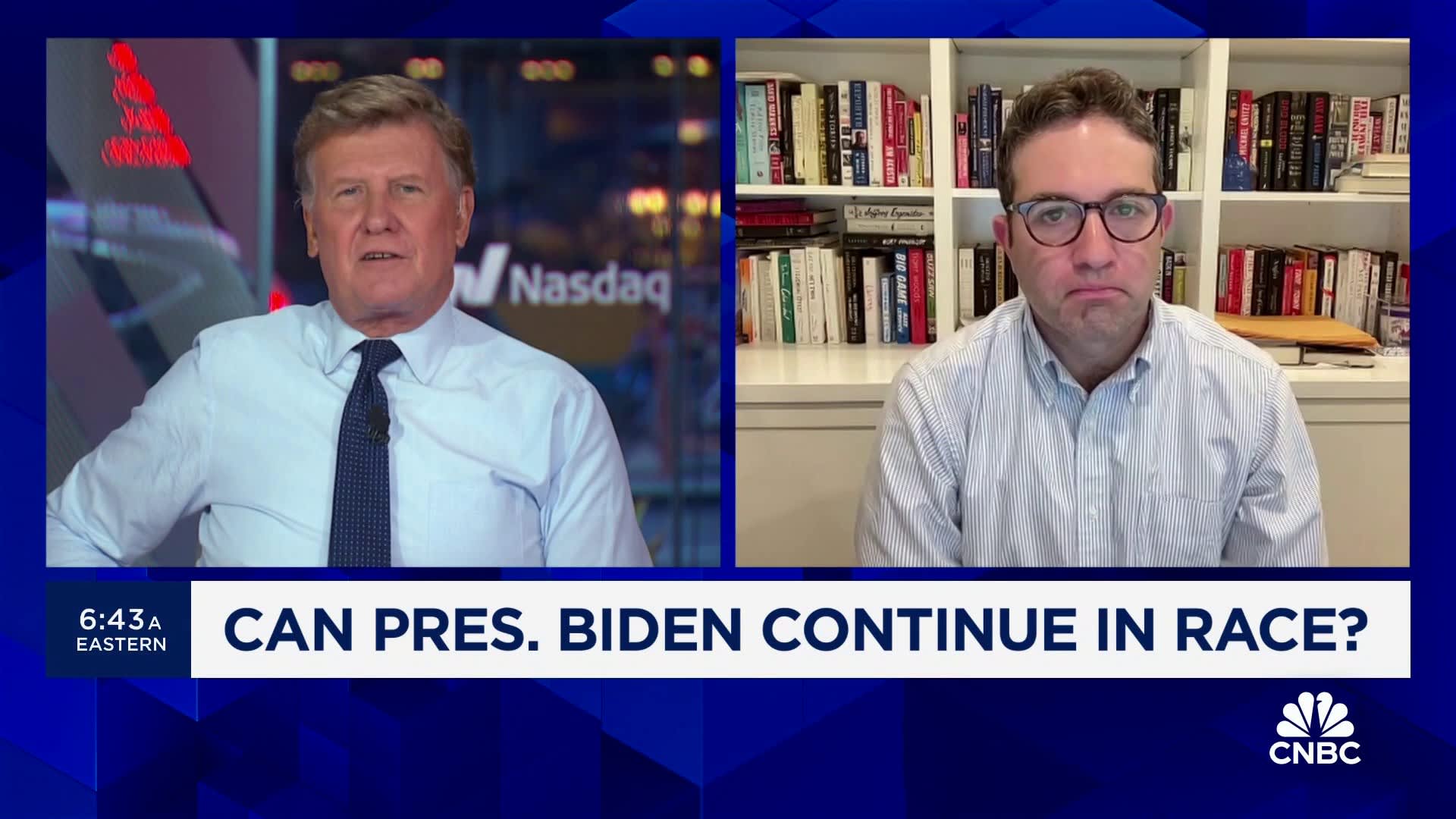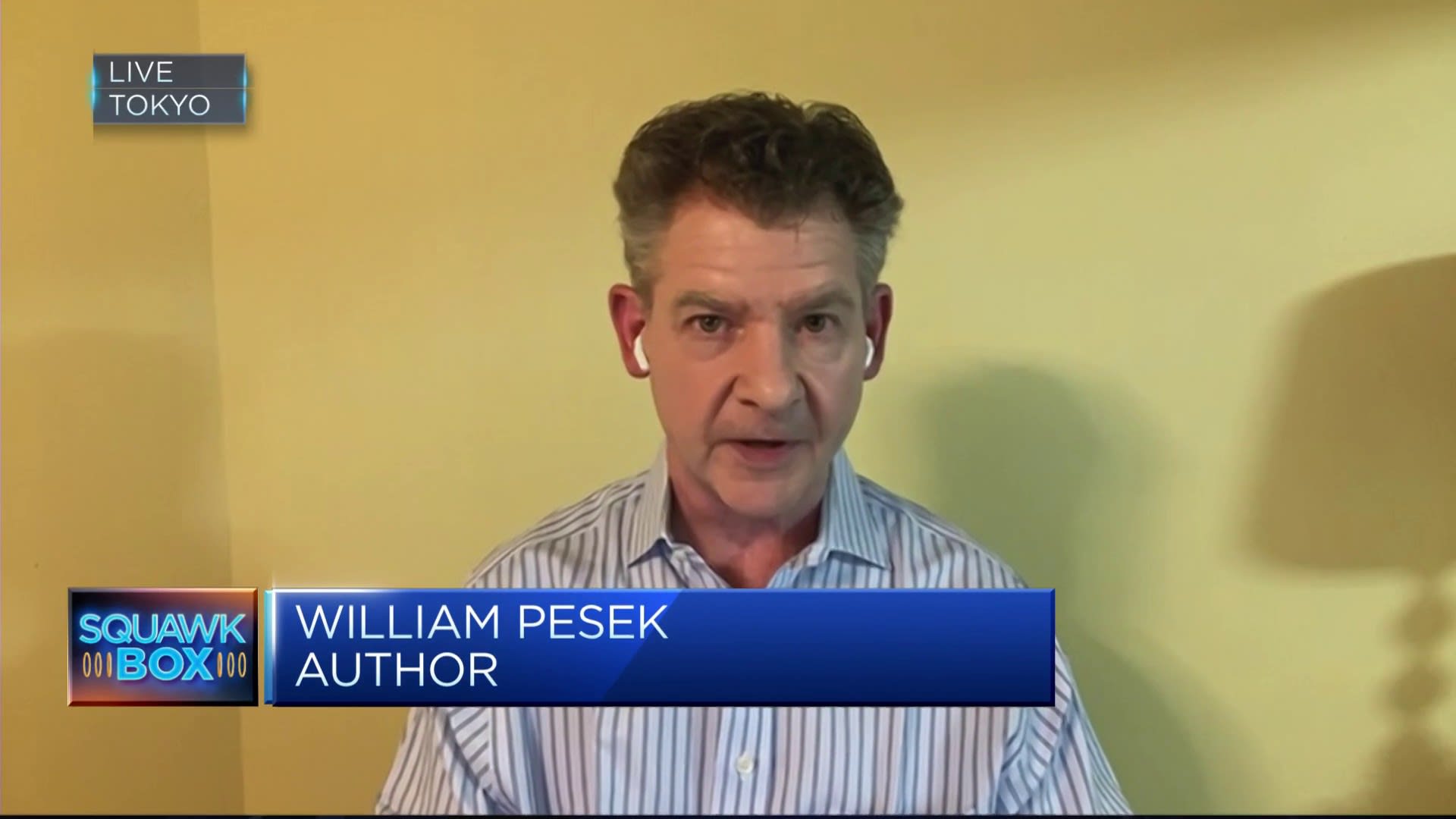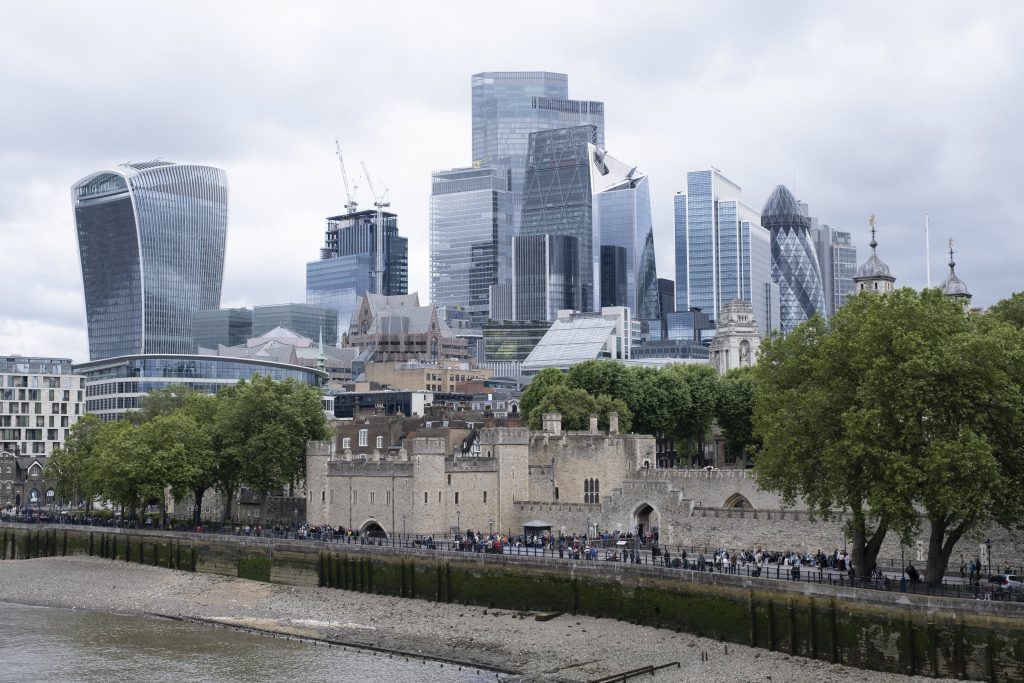Prime Minister of Japan Shinz Abe, and U.S. President Donald Trump hold a joint press conference in the Rose Garden at the White House in Washington, D.C., on Thursday, June 7, 2018.
Cheriss May | NurPhoto | Getty Images

Pesek said that the Japanese government had been “pretty certain that Biden had this well in hand.” However, following the recent turmoil in Biden’s party, Japan’s ruling Liberal Democratic Party is now reappraising the odds of a “Trump 2.0 presidency.”
“I think the issue with Trump, he’s very transactional, he’s not very predictable. He’s not very loyal in terms of relationships anywhere. Never mind Asia. If you’re Japan, they’re looking at the future and wondering, ‘this could be a fascinating few years for for us.'” Pesek said.
Collateral damage
A Trump presidency is concerning to Tokyo because Japan suffered from “collateral damage” during his first term, Pesek said.
“In many ways, a lot of his trade war policies were aimed at China, but Japan’s economy suffered greatly during that period.
Trump has vowed a 10% across the board tariff on worldwide imports and 60% tariffs on China if he becomes president.

A paper by UK-headquartered Centre for Economic Policy Research in 2019 found that operations in China of Japanese multinationals had been hurt by the trade war, especially of Chinese affiliates that relied heavily on trade with North America.
CEPR said “This led to a reduction in their stock prices. The impact is amplified when the Chinese affiliates are more integrated in the value chain of the MNCs – that is, if they have a higher import share from Japan.”
“Trump has talked about a 60% tariff on Japanese goods. He’s talked about 100% tariffs on car imports. Will that include Japanese automakers? So there’s a lot of uncertainty here at the moment about what the next five years could look like,” Pesek said.
“Now Japan has to, in many ways, go back to the drawing board, and at least begin bracing for a Trump 2.0 presidency, which is not going down very well [in Tokyo].”
Military agreements
Japan will also be worried about its regional security outlook under a second Trump presidency, as well as issues like the housing of U.S. troops under the U.S.-Japan mutual defense pact.
Pesek said Trump tried to “shake Japan down, essentially, for protection money to maintain U.S. troops.” In 2019, Trump had asked Japan to pay $8 billion for maintaining U.S. troops in the country.
Under the terms of the U.S.-Japan mutual defense agreement signed in 1960, the U.S. agreed to “bear for the duration of this Agreement without cost to Japan all expenditures incident to the maintenance of the United States armed forces in Japan,” excluding certain specific costs that Japan would bear, such as handing over facilities that are needed by U.S. forces.
National security issues are a major concern for Japan.
“The idea that Trump would step away from [aid to] Ukraine aid certainly would reverberate here in Asia,” Pesek said.
This would place in question the U.S.’ willingness to defend Taiwan in the event of a Chinese incursion.
While the U.S. has a policy of “strategic ambiguity” for its defense commitments to the island, the 1979 Taiwan Relations Act states that “any effort to determine the future of Taiwan by other than peaceful means,… [is] of grave concern to the United States.”
Pesek said that while Japan does not have an offensive military, Tokyo will be under pressure to aid Taiwan, and whether Trump would do so was unsure.
Separately, Trump’s relationship with North Korean leader Kim Jong Un was also leading him to take steps that were at odds with Japan’s national security, Pesek said. For example, Trump could invite Kim for a summit in the White House in a second term, which would be a “disaster” for Japan and South Korea.
At that point, both Japan and South Korea could pivot toward developing nuclear weapons, which will “shake up the region in very, very significant ways.”
Currently, Japan is committed to its “Three Non-Nuclear Principles,” ruling out the production, possession, or introduction of nuclear weapons, while South Korea agreed in 2023 not to develop its own nuclear weapons in exchange for the deployment of U.S. nuclear-armed submarines to the country.

